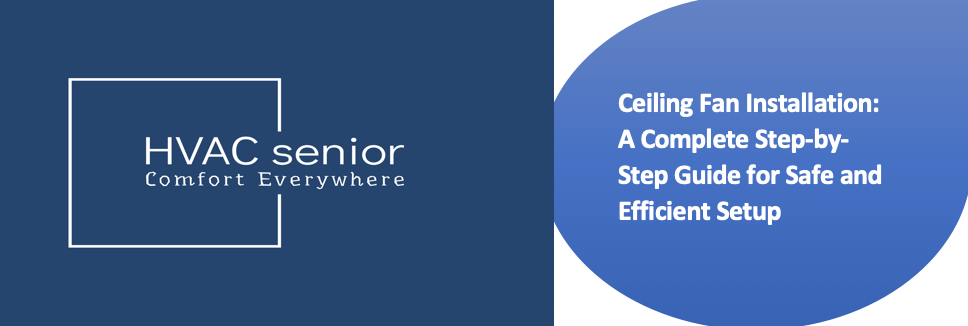There’s nothing quite like taking to the open road in your camper or RV, with the ultimate freedom of going wherever you want. But when the sun starts beating down in the summer months, all that freedom can go uncomfortably quickly. A camper air conditioner transforms your travel experience into one that is cool, cozy, and comfortable.
Whether traveling in your RV for extended road excursions, weekend retreats, or full-time residence, this manual has you completely covered from A to Z — from model selection to installation, service, and energy-conserving tips.
Why You Need a Camper Air Conditioner
Comfort on the road is not just a luxury — it’s necessary to your health, relaxation, and pleasure. Here’s why a camper air conditioner is an absolute necessity:
1. Defeat the Heat Everywhere
Camper heat comes in quickly, especially in the daytime. A good AC keeps you refreshed indoors irrespective of the ambient heat outside.
2. Comfortable Sleep and Rest
A cool sleeping area is vital for rest. With a camper AC, you will enjoy undisturbed nights even in the tropics or deserts.
3. Keep Your Electronics and Interiors Safe
Extreme heat can destroy electronics, appliances, and furniture in your camper. A temperature-controlled air conditioner keeps the interior temperature steady, protecting your investment.
4. Increased Travel Seasons
With a good AC, you can travel during hot months and stay comfortable — i.e., more flexibility in your camping and traveling schedules.
Also read: Camper Air Conditioner Not Working
Types of Camper Air Conditioners
There are several kinds of air conditioners for campers and RVs. The best choice depends on your vehicle, space, and power setup.
1. Rooftop Air Conditioners
These are the most favored ones among campers and RVs. Mounted on the roof, they provide floor space and distribute cool air evenly.
Pros: Powerful, efficient, and provides floor space.
Cons: Hard to mount on the roof, noisy, and adds to height on your vehicle.
2. Portable Air Conditioners
The portable models can be moved around in the camper as and when desired and ventilated outdoors through a window. They’re ideal for convenience and ease of installation.
Pros: No permanent installation, portable, for small campers.
Cons: Takes up floor space and may need manual drainage.
3. Window Air Conditioners
Window AC is a cost-effective solution for smaller or older campers.
Pros: Effective and cost-friendly.
Cons: Needs to be adjusted to sit perfectly and may obstruct a portion of your sight.
4. Under-Bench or Split Air Conditioners
These air conditioners possess an indoor unit installed under a bench or a bed and an outdoor compressor mounted below the camper.
Pros: Relatively quiet and compact with great cooling.
Cons: Increased expense and more complicated setup.
5. 12V and DC-Powered Air Conditioners
For off-grid travelers, low-voltage AC units operate straight from the car battery or a solar system.
Pros: Best for solar systems and boondocking.
Cons: Smaller cooling capacity and higher cost per watt.
Things to Note when Buying a Camper Air Conditioner
To get the best model, pay close attention to these necessary specifications and characteristics:
1. Cooling Capacity (BTU)
The quantity of cooling capacity is indicated in BTUs (British Thermal Units). For campers:
- Small vans (under 15 ft): 5,000–8,000 BTU
- Medium campers (15–25 ft): 9,000–13,000 BTU
- Large RVs (25 ft+): 15,000–18,000 BTU
Choosing the right capacity avoids overloading your power system and facilitates proper cooling.
2. Power Source and Energy Efficiency
Confirm the wattage and power compatibility of the unit. Some ACs are 120V shore power, while others are 12V DC or inverter models.
Choose energy-efficient units with inverter technology or eco modes to help save electricity, especially if solar or battery powered.
3. Noise Level
Noise is usually an issue in small campers. Choose units under 55 decibels for quiet performance and peaceful sleep.
4. Size and Weight
Space is precious in campers. Ensure that the unit is properly sized for your installation area without impeding storage, windows, or roof vents.
5. Climate Compatibility
If you use your camper in humid areas, look for a unit with a dehumidifier option. In dry climates, even evaporative coolers will work well.
6. Durability and Maintenance
Driving on the road exposes your AC to vibrations, dust, and temperature changes. Opt for a model that can be used when moving around with easy filter cleaning and rust-free parts.
How to Install a Camper Air Conditioner
Installing a camper air conditioner can be simple or complex, depending on the model type. Here is a general process:
Step 1: Choose the Installation Location
For roof units, utilize a level section of the roof (usually where vent is). For window or portable units, ensure there is accessible vent or window space.
Step 2: Prepare the Mounting Area
Clean the area and remove any existing covers. Check roof strength and measure openings precisely to avoid air leaks.
Step 3: Mount and Seal
Install the AC in position, use a proper gasket, and secure it tightly. Use weather-tight silicone to seal edges to prevent leakage.
Step 4: Electrical Connection
Plug into your camper power source — either 120V shore power or 12V DC system with an inverter. Ensure your wiring is voltage- and amperage-rated.
Step 5: Test Run
Turn the unit on and inspect airflow, temperature reduction, and drainage. Monitor for strange noise and ensure that the system cools consistently.
If in doubt, hiring a professional to install ensures longevity and safety.
Also read: camping air conditioner
Maintenance Tips for Long-Lasting Operation
A camper air conditioner can easily last 10+ years if properly maintained. Adhere to these routines to ensure yours runs efficiently:
- Clean or replace filters to keep airflow going.
- Inspect vents and ducts for blockage or dust accumulation.
- Inspect seals and gaskets after long trips or bumpy roads.
- Operate your AC occasionally even during off-season to keep parts lubricated.
- Protect your unit when not in use for extended periods to prevent dirt and debris entry.
- Inspect power supply to avoid voltage fluctuations that can damage the system.
Common Problems and Quick Solutions
Even quality units experience hiccups. Here are some common problems and solutions they experience:
- AC not cooling well: Check for dirty vents or clogged filters.
- Water leakage: Drain line may be clogged or unit is not properly level.
- No power: Check power source, fuses, or circuit breaker.
- Strange noise: Loose screws or fan blades need to be tightened.
- Odor: Filters and coils within must be cleaned using mild soap.
Small issues stay that way and do not turn into costly repairs.
Energy-Saving Tips While Using a Camper Air Conditioner
When there is not much power, watts count. Use these smart strategies to save energy and stay cool:
- Pre-cool your camper early in the morning or prior to the hottest sun hour.
- Park in the shade or use reflective window and roof coverings.
- Close windows and blinds and run the AC for air retention.
- Use fans for air circulation, which reduced the burden on your AC.
- Set the temperature to around 23–25°C (73–77°F) for comfort as well as for efficiency.
- Use insulation panels or blackout curtains to block heat entry.
- Switch to eco or sleep mode when resting at night.
Also read: camping tent air conditioner
Are Camper Air Conditioners Worth It?
Absolutely. A camper air conditioner isn’t just a luxury — it’s a quality-of-life upgrade. For travelers exploring warm or tropical areas, it’s the key to year-round comfort. You’ll enjoy restful sleep, protect your interior equipment, and make every journey more enjoyable.
While it is an investment, returns in comfort, safety, and versatility make it one of the most valuable upgrades to any camper or RV.
Quick Buying Checklist
When you buy, make sure these essentials:
- BTU rating fits camper size
- Power source appropriate for your configuration
- Noise level below 55 dB
- Good brand with mobile-standard construction
- Easy access to vents and filters
- Dehumidifier or eco mode if needed
- Roof or window-compatible
- Reasonable warranty protection
Last Thoughts
A camper air conditioner is the quintessential road comfort package. It transforms your vehicle into a cool, welcoming home — no matter the ambient temperature.
When you’re shopping for your unit, consider size, energy efficiency, and installation type. Couple it with smart techniques like shading, ventilation, and scheduled maintenance, and your cooling system will function reliably for years to come.
Whether crossing hot deserts, camping on beaches, or driving through deserts, a good camper AC makes every mile new and comfortable.









